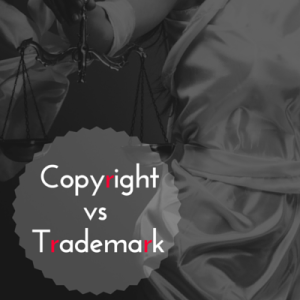The difference between copyright and trademark is in the content that each protects. Formal registrations of both copyright and trademark are issued through the federal government.
Common law rights for both copyright and trademark are ruled by state law and, as such, offer limited protection.
A Copyright protects original works of authorship such as articles, website content, books, movies, songs, paintings, images (including graphics) and photographs, as well as choreography.
A federally registered copyright offers more protection to the author and his or her ability to control how the work is shared  publicly, as well as how it is reproduced and distributed. A formal (registered) copyright also allows the author to sue infringers in federal court and provides methods for preventing others from distributing copyrighted works.
publicly, as well as how it is reproduced and distributed. A formal (registered) copyright also allows the author to sue infringers in federal court and provides methods for preventing others from distributing copyrighted works.
A Trademark, by contrast, protects things that identify a business, such as a business name, tag line, logo, and/or symbol. In other words, it protects a company’s identifiable marks and protects them from being used by others in the marketplace.
A trademark identifies the source of goods. For example, when you see a swoosh on a pair of shoes you know those shoes are from a company named Nike and not from Adidas.
Like copyright registration, a federally registered trademark allows the owner to sue others for trademark infringement in federal court and gives the owner the power to prevent the distribution of goods that display the trademark or “pretend” to be a product of the company that owns the mark.
